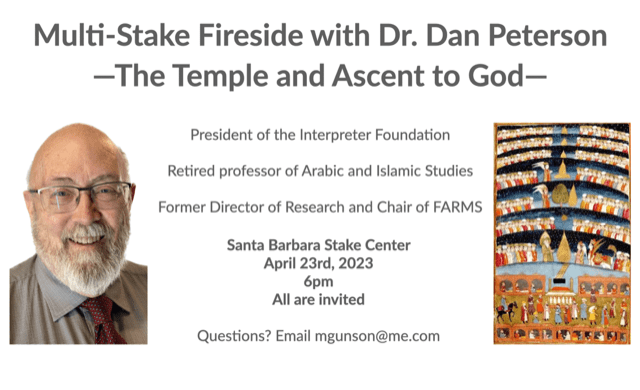
This post, which focuses again on the famous passage in Matthew 5:48 (in the King James Version, “Be ye therefore perfect, even as your Father which is in heaven is perfect”), is a continuation of “On Being ‘Perfect’ (Part One),” which went up on 2 April 2023.
In our effort to understand Matthew 5:48, we should certainly not ignore the verse’s context. That is an all-too-common error in the explication and deployment of quotations from the Bible; we must resist that temptation.
The passage immediately follows an extended discussion of the importance of loving even our enemies (5:43-47, or perhaps 5:38-47 altogether), a passage that specifically refers, as an illustration of what it means by loving even enemies, to “your Father which is in heaven,” who “maketh his sun to rise on the evil and on the good, and sendeth rain on the just and on the unjust.” And there is no clear or explicit division between 5:47 and 5:48, no reason to believe that 5:48 represents an entirely new and unrelated thought.
At a minimum, accordingly, the “perfection” spoken of in Matthew 5:48 must involve a perfection of love — even toward those who are, by just about every earthly standard, unlovable and, sometimes, even hateful. As J. B. Phillips renders Matthew 5:46-48 in his very readable twentieth-century translation (a longtime favorite of mine),
For if you love only those who love you, what credit is that to you? Even tax-collectors do that! And if you exchange greetings only with your own circle, are you doing anything exceptional? Even the pagans do that much. No, you are to be perfect, like your Heavenly Father.
And such perfect love goes far beyond — and is far more difficult than — merely a perfect attendance record at Sunday school or unvarying abstinence from tobacco or the scrupulously accurate payment of tithing. It is, in fact, something that we cannot manage on our own, unaided. It is a spiritual gift that we are commanded to seek. Here are the words of the prophet Mormon, as recorded by his son:
Wherefore, cleave unto charity, which is the greatest of all, for all things must fail—
But charity is the pure love of Christ, and it endureth forever; and whoso is found possessed of it at the last day, it shall be well with him.
Wherefore, my beloved brethren, pray unto the Father with all the energy of heart, that ye may be filled with this love, which he hath bestowed upon all who are true followers of his Son, Jesus Christ; that ye may become the sons of God; that when he shall appear we shall be like him, for we shall see him as he is; that we may have this hope; that we may be purified even as he is pure. Amen. (Moroni 7:46-48)
Moreover, the passage immediately following Matthew 5:48 — and please remember that the chapter and verse divisions are not part of the original biblical text but were introduced long after the original writing of the New Testament, so that we should not imagine that a chapter break necessarily indicates a break in continuity of thought — demands that our “righteousness” or “perfection” not be motivated or muddied by a desire for ego-gratifying public display. (See Matthew 6:1-6.)
It is also essential to understand that, as Norbert Duckwitz recently pointed out in a Facebook response to my earlier post, the first word in the passage is in the future tense. It isn’t, literally, a command. It is the Greek verb εσεσθε, which is translated as “be” (the first word in the English of the King James). It is a second-person plural form of the verb ειμι (“to be”). And the fact that it is in the future tense, and not strictly an imperative command, is significant. The future tense can, of course, be a way of expressing a command. In English, for example, the boss says to the employee “You will organize these files tomorrow,” or “Next week, Bob, you’ll go to Boston and meet with our staff there.” She’s not merely making a prediction, despite her employment of the future tense. She’s issuing an order. But sometimes too, obviously the future tense simply indicates, well, a future action or a future condition. In that light, consider some of these English translations of Matthew 5:48:
- “You shall be perfect.” (roughly or exactly thus in the American Standard Version, the Disciples’ Literal New Testament, the 1599 Geneva Bible, the New American Standard Bible, the New King James Version, the Revised Geneva Translation, the World English Bible, and Young’s Literal Translation)
- “You are to be perfect.” (roughly or exactly thus in the Legacy Standard Bible, the Living Bible, the Mounce Reverse Interlinear New Testament, the New American Standard Bible 1995, and the New Living Translation)
So perhaps one way of taking Matthew 5:48 — certainly one way to be considered — is not as an intimidating and even discouraging command to do what seems impossible but, rather, as a simple statement of fact that we will someday be perfect. As a comforting divine promise that, however distant and unattainable perfection may seem to us now, we will (if we continue to strive to follow the Savior, if, to borrow language now closely associated with President Russell M. Nelson, we persist on “the covenant path”) someday attain it. It might be, taken in that sense, an expression of divine confidence in us and in his own plan for us.
.

Incidentally, barring unforeseen circumstances I’ll be in Santa Barbara, California, this coming weekend. (Not exactly the worst place in the world!) Among other things, at the invitation of Bishop Michael Gunson there, I’ll be speaking to a fireside audience on Sunday evening. If any of you happen to be in the vicinity at the time, please feel free to drop in:
To be continued.














